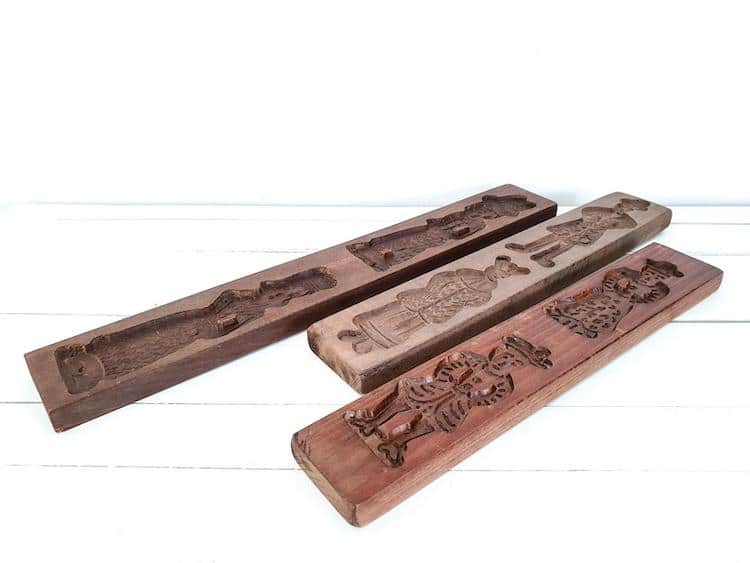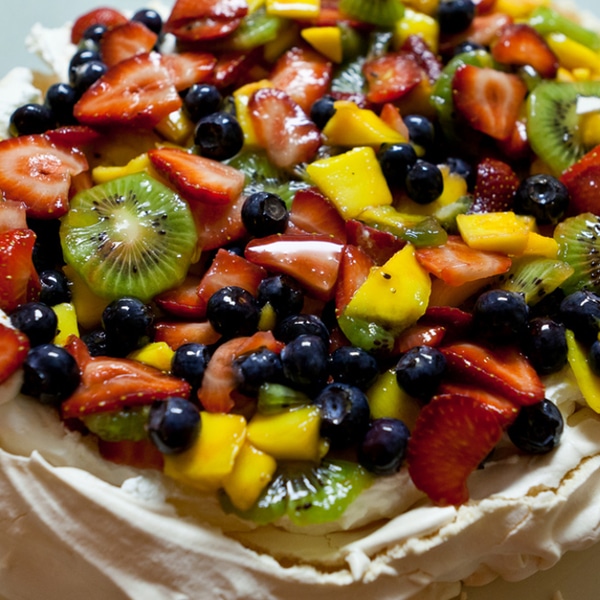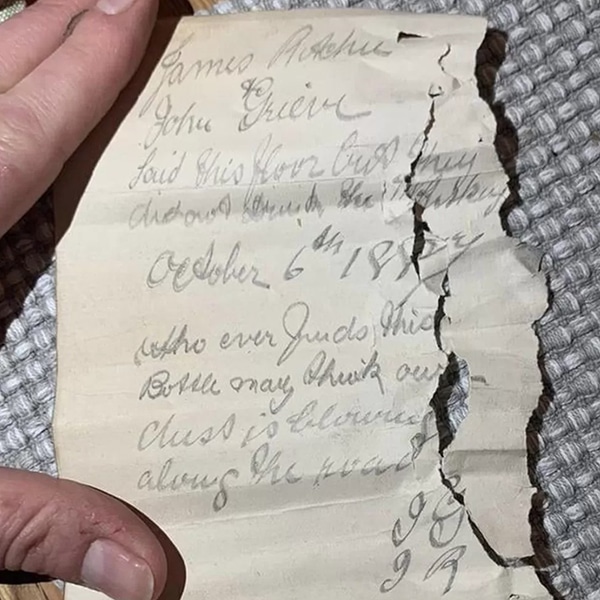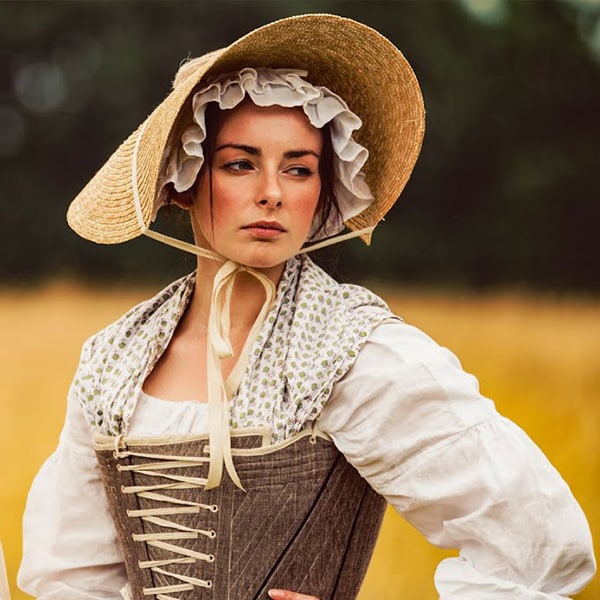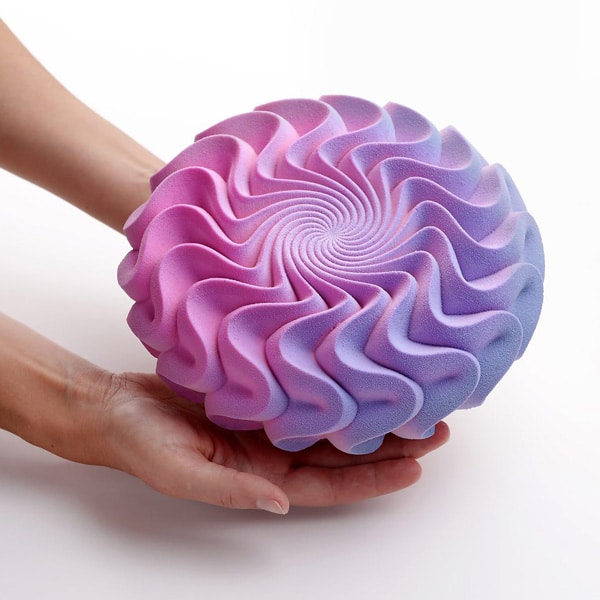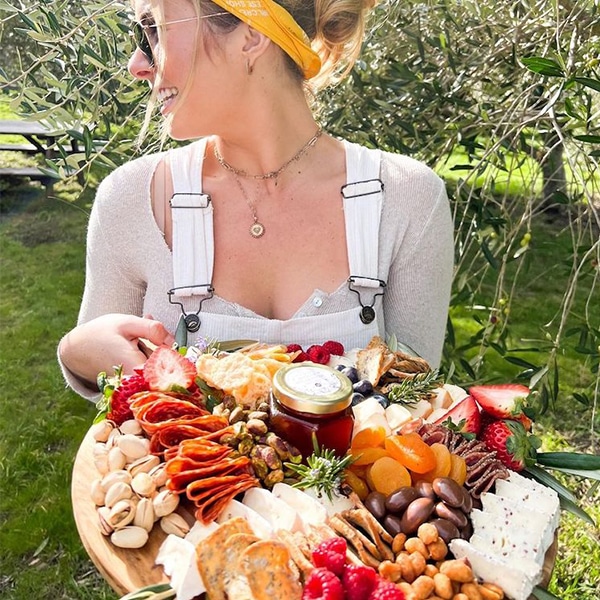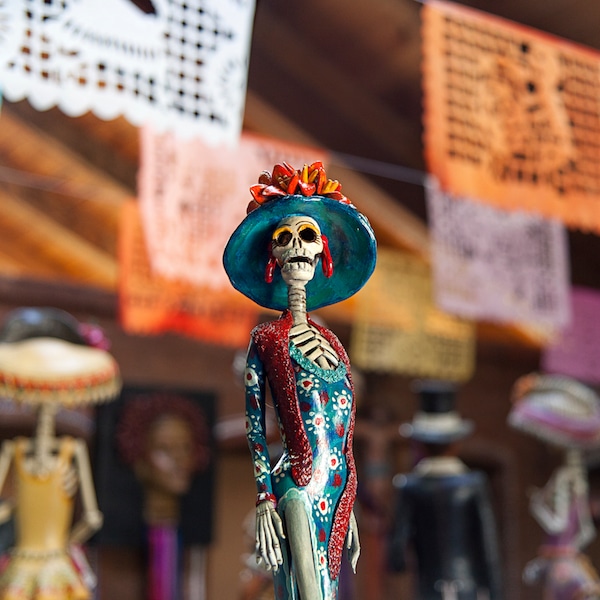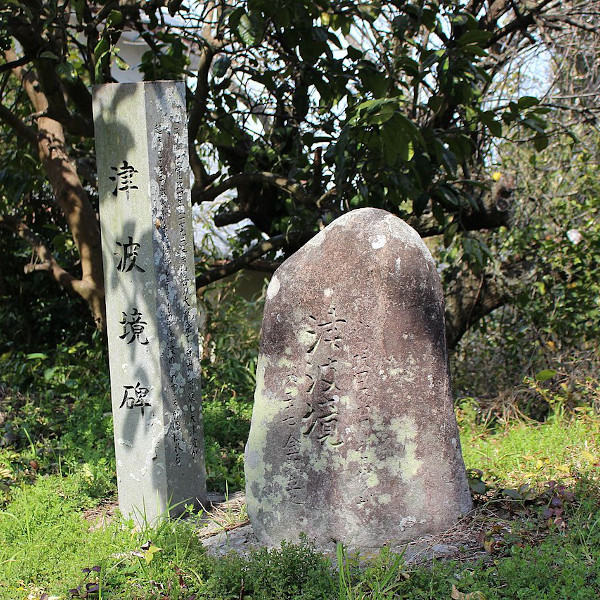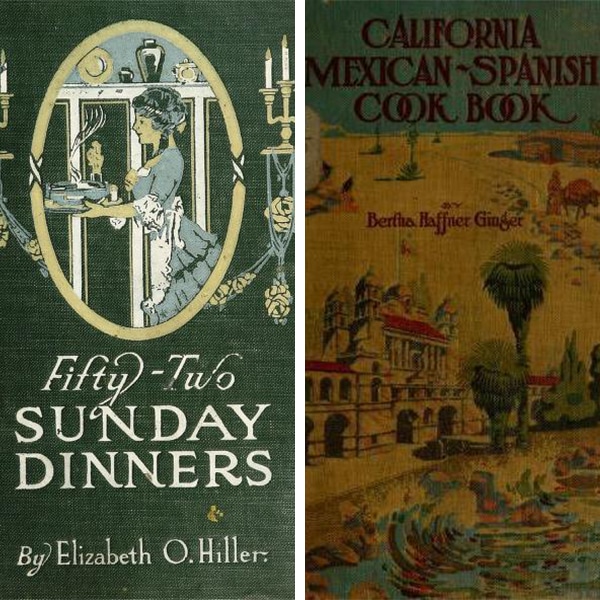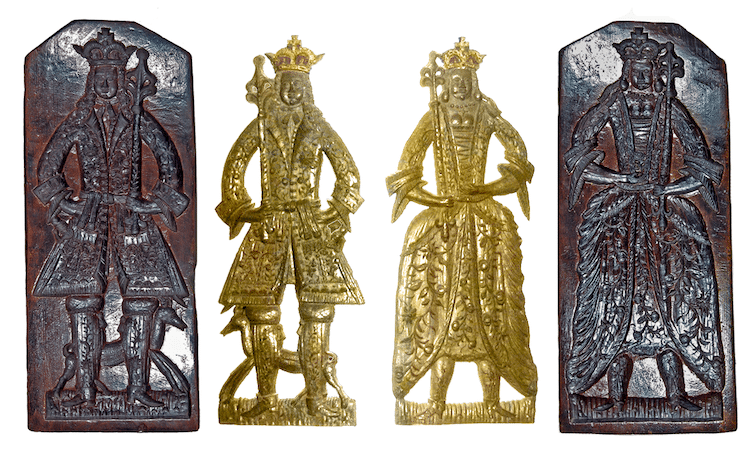
This post may contain affiliate links. If you make a purchase, My Modern Met may earn an affiliate commission. Please read our disclosure for more info.
For centuries, gingerbread has been an important part of holiday tradition. It has also provided an opportunity for creatives to impress friends and family with intricate cookies or edible structures. Dabbling in an artistic baking experiment is always fun, but at the end of the day, gingerbread is best when shared with loved ones. Did you know that intricate gingerbread cookies in the shape of your partner symbolized romantic love in medieval times? The dough was pressed into carefully made wooden molds and painted over with icings and gold leaf.
The history of gingerbread is a fascinating reflection of society, especially the romantic side. So let’s dive back in time and see how the origins of this commonly festive baked good was far more alluring and how that sentiment evolved. And if you feel inspired to craft a gingerbread gift for partners and friends, we’ve got some crafting kits down below. We’ve even got a Medieval recipe to help you win extra points for authenticity!
Early Origins of Gingerbread

Saint Gregory of Nicopolos (Photo: Franciscan Media)
An Armenian monk named Gregory Makar, also known as Gregoy of Nicopolos, brought gingerbread to France at the end of the 10th century. It remained a mostly local custom until almost 200 years later, when the famous gingerbread from Toruń, Poland gained popularity across Europe. Soon, gingerbread became a favorite treat in Europe, inspiring gingerbread festivals and events, artisan gingerbread trades in monasteries, and even the attention of Queen Elizabeth I.
A Symbol of Love
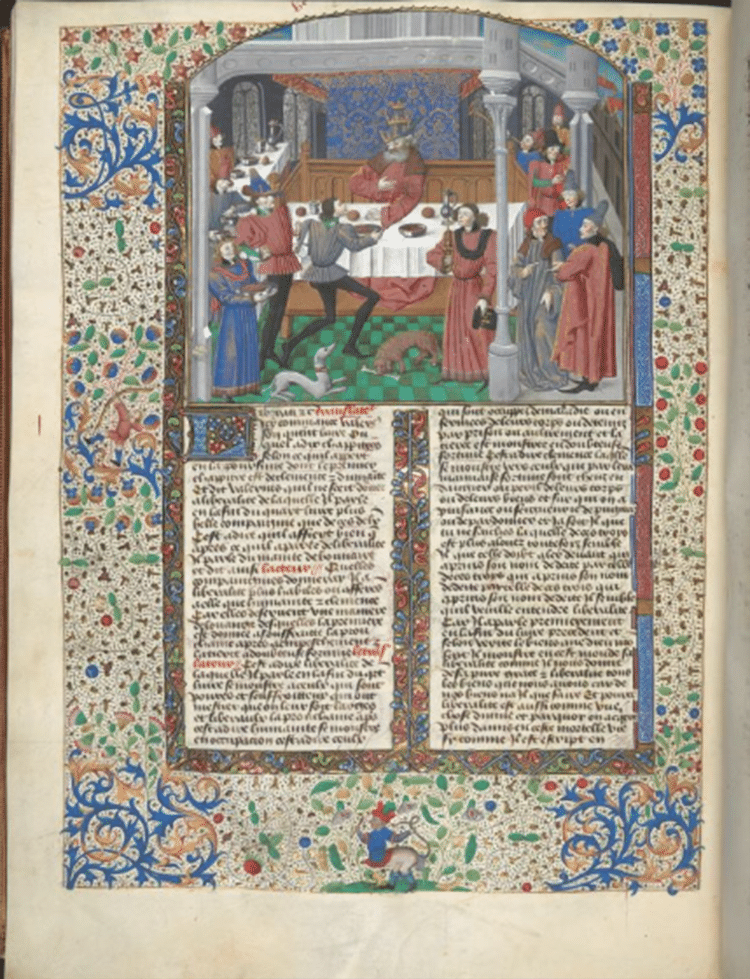
15th Century Manuscript Depicting Banquet (Photo: Harley MS 4372 retrieved by British Library Blog)
Some believe that gingerbread men began in the Netherlands, where wedding cookies in the shape of Biblical figures Abraham and Sarah were given to wish the new couple success in conceiving a child. The more popular theory suggests that the tradition of gingerbread cookies as a symbol of affection may have started with Queen Elizabeth I, when she commissioned intricate cookies in the likeness of her royal guests.
The idea gained popularity with the royal court and servants. Knights gave cookies to maidens with intricate flowers, birds, or their crest for family or country. Ginger was an expensive spice that indicated the seriousness of someone’s pursuit. The spice was also sure to warm the body, and hearts, of the receiver. Young women who were not gifted gingerbread were said to eat cookies anyway, thinking it would bring them good luck in finding love in the future.
The gingerbread consumed as part of this romantic custom is not the same recipe we eat today. Often, white gingerbread was used to help pick up the details of these molds. Goldleaf and light icings were used to enhance the decorations, while other, simpler versions of the cookie resembled a ginger cake or gingerbread that was darker in color and had a stronger taste.
Medieval Ginger Bread Recipes
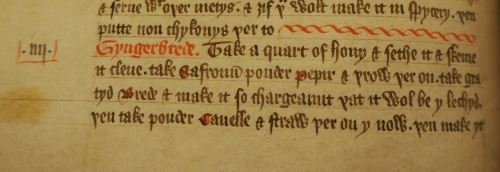
Medieval Gynger Brede Recipe (Photo: Harley MS 279 retrieved by British Library Blog)
Want to bake gingerbread that was made during the medieval times? Here’s the recipe:
“Gyngerbrede.—Take a quart of hony, & sethe it, & skeme it clene; take Safroun, pouder Pepir, & þrow þer-on; take gratyd Brede, & make it so chargeaunt*. [stiff. ] þat it wol be y-lechyd; þen take pouder Canelle, & straw þer-on y-now; þen make yt [leaf 28.] square, lyke as þou wolt leche yt; take when þou lechyst hyt, an caste Box leves a-bouyn, y-stykyd þer-on, on clowys. And ȝif þou wolt haue it Red, coloure it with Saunderys y-now.”
If you did not quite understand the Old English spelling, don't panic yet. The blog A Dollop of History has created an easy-to-follow and modern version of this recipe. You can also explore a digital version of Two Fifteenth Century Cookbooks: Harleian MS. 279 from the University of Michigan, where the recipe originates.
Buy Your Own Intricate Molds
Though these may not be the intricate medieval molds you would find in Medieval Europe, there are plenty of beautiful patterns to choose from. Most are inspired by Dutch Speculaas, but the intricate patterns and pressing process remain the same.
Man and Woman Molds
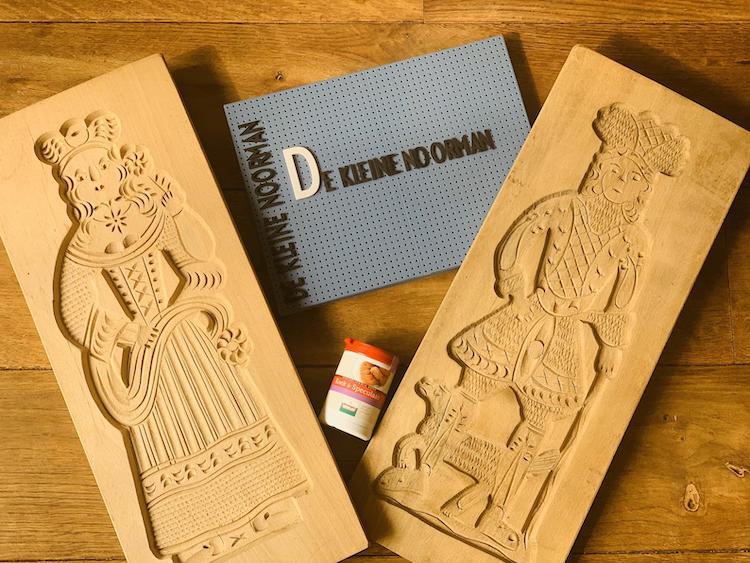
SpeculaasSpice | $25.07
Wooden Pryanik Gingerbread or Shortbread Cookie Mold
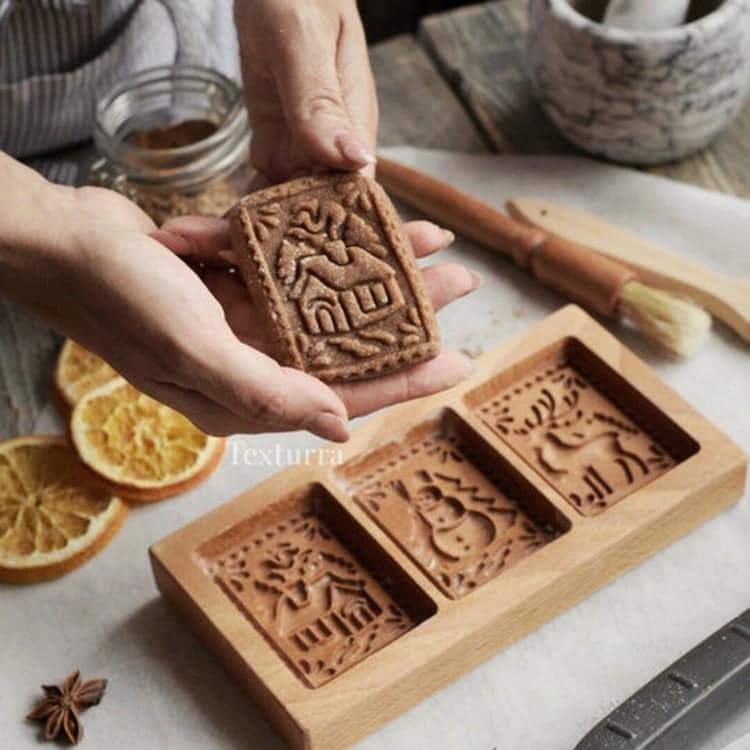
TexturraWorkshop | $25
Springerle Engraved Gingerbread Rolling Pin
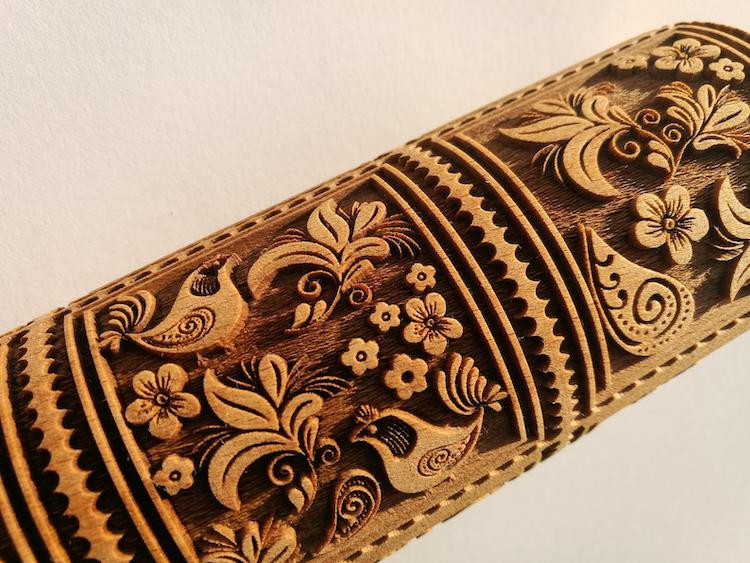
OmaMarta | $27.88
Antique Dutch Wooden Speculaas Mold
BodaciousOld | $21.68
Skip the Baking—Buy the Cookies Instead
In the words of William Shakespeare himself, “An I had but one penny in the world, thou shouldst have it to buy gingerbread.” You can still enjoy the beautiful details and the romantic stories without making a mess in the kitchen.
Vintage Gingerbread Sinterklaas Saint Nicholas Speculaas
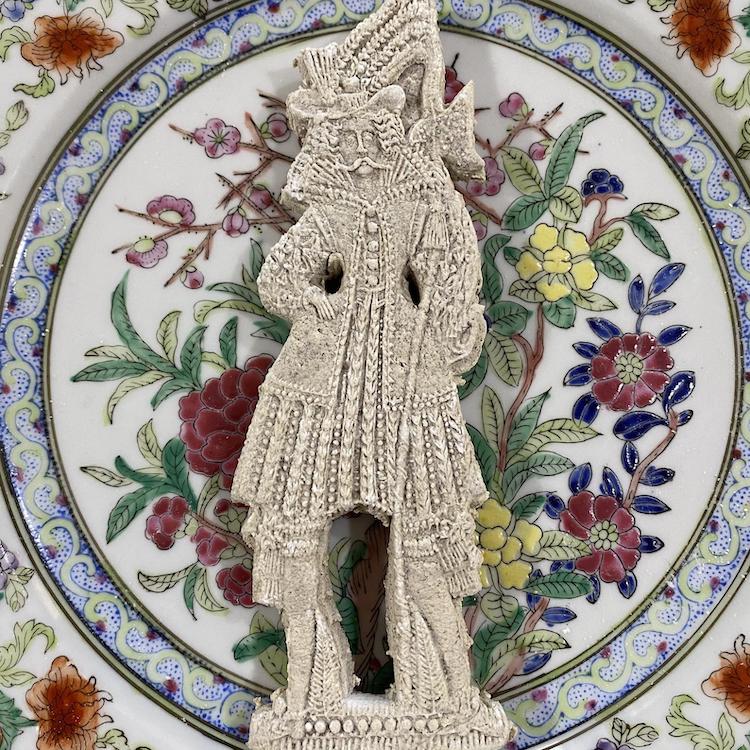
GingerLilySweets | $36
3 Large 4.5”x11.5” Whimsical Princess / Wedding Carriage Honey Gingerbread
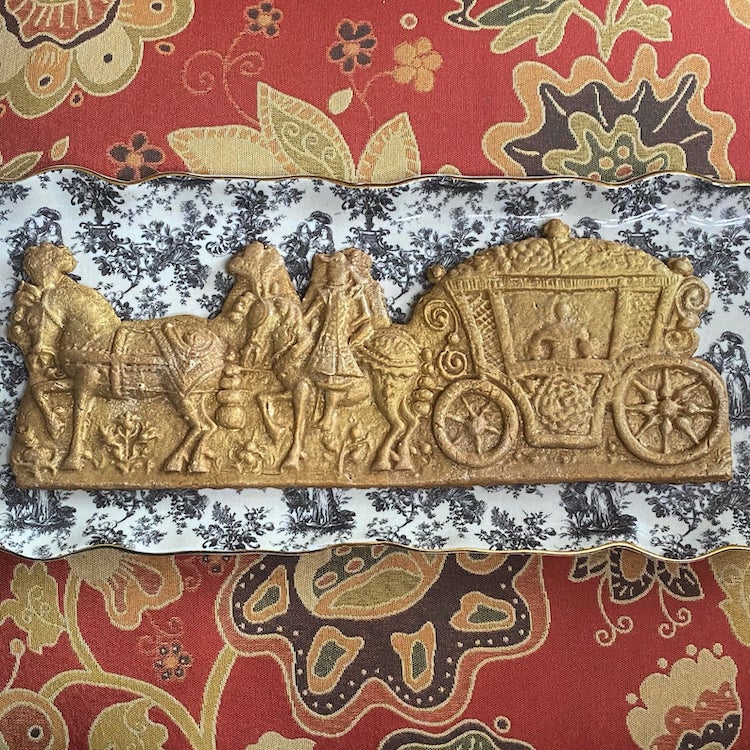
GingerLilySweets | $58.80+
Assorted Flavor Soft German Springerle Cookies
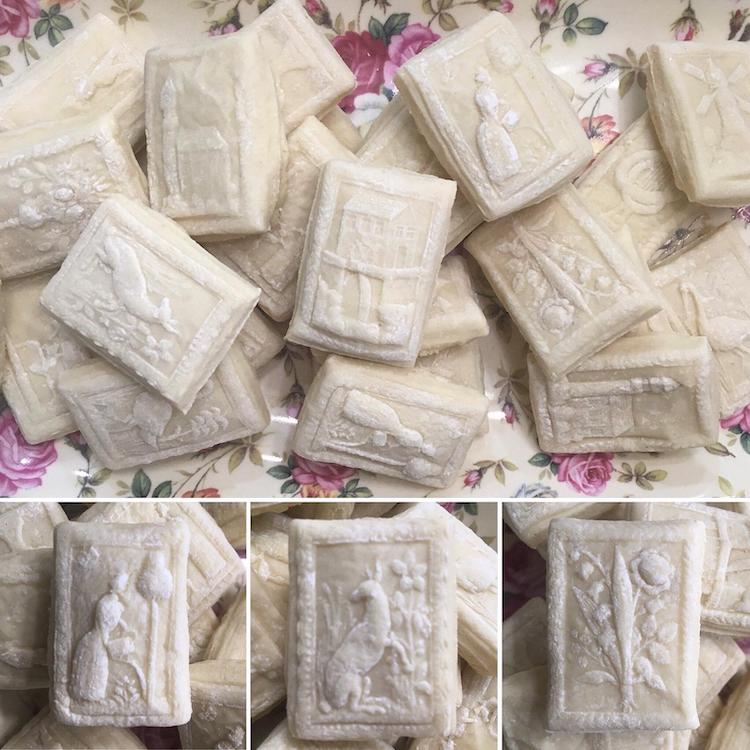
GingerLilySweets | $34.60+
Related Articles:
Dublin Grocery Store Installs Glass Floor for Shoppers to View Viking History Just Below
10,000 Rare Vintage Cookbooks Now Available for Free Online
Woman Creates Incredible Movie-Inspired Sculptures Out of Gingerbread
Artist Sculpts Massive 5-Foot-Tall Gingerbread Castle Unlike Any Other
